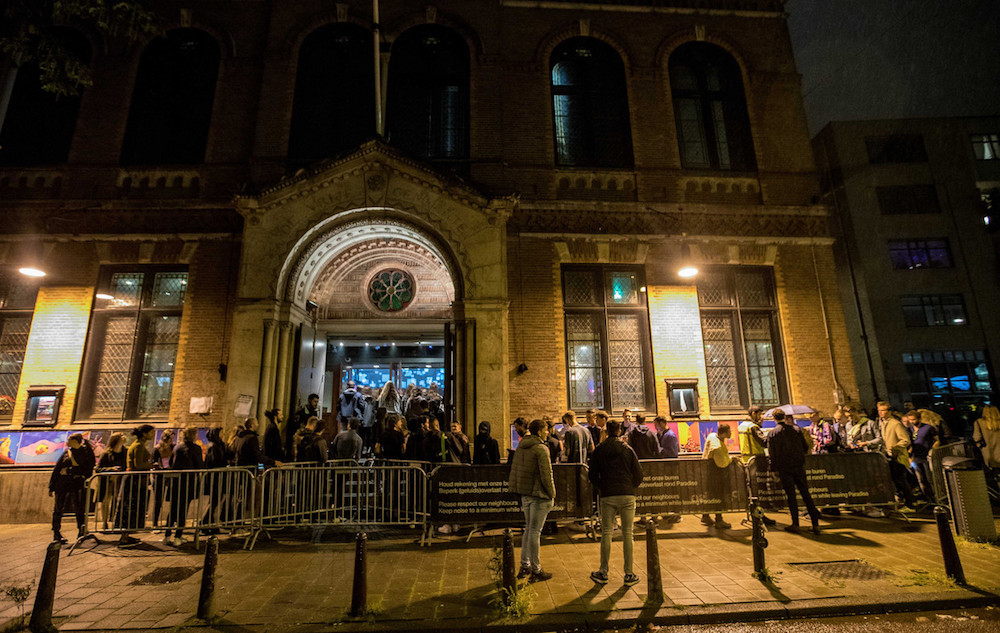“A Living Cultural Heritage” – Finally recognition for Amsterdam’s nightlife.
This Wednesday the Amsterdam municipality published the Nachtvisie, a four year outline for the city’s Art and Culture policy, which stands to support and strengthen Amsterdam’s nightlife.

The night culture of Amsterdam is of ‘huge importance’ to the city. From clubs to cafes and bars: Amsterdam’s night culture provides the city with 63 million euros annually, according to research by Atlas Research. Commissioned by the municipality, the research bureau investigated the value of the Amsterdam night for the first time.
The city has more than five hundred night locations, 131 of which with cultural programming, which provide more than five thousand jobs. An estimated 1.5 million visitors, Dutch and foreign tourists, come to Amsterdam every year for the clubs, parties and festivals. During their stay they spend about 1.25 billion euros, which generates an annual prosperity gain for the city of 63 million euros. That is not counting the income from, for example, the tourist tax.
But due to the city’s growth, that night culture is under pressure: clubs are succumbing to high rents and space for dance locations is shrinking. In recent years, Sugar Factory, Claire and De School, among others, have closed their doors and the temporary contracts of Garage Noord and De Marktkantine will soon expire.
Night Vision
To prevent even more of this ‘unique’ part of Amsterdam from disappearing, the municipality will present a vision of night culture for the first time on Wednesday. In doing so, the council emphasizes the ‘enormous importance’ for the city and thus gives the recognition that the sector has been waiting for for years.
“The night culture adds more to Amsterdam than most people think”
says culture alderman Touria Meliani.
“It adds love to this city. It creates encounters, new art forms. For the arts sector in all its facets, night culture is an important part of the humus layer: a place for inspiration, cross-pollination and indispensable in the development of talent.”
The night bill, based on many conversations with people from the industry, is the first step towards developing municipal policy. There will be a Team Night Culture, where newcomers and established entrepreneurs can go for questions about policy. The high threshold for new initiatives due to a maze of rules and lack of clarity about various permit offices is a frequently heard complaint within the sector. This should be reduced.
Opening hours
The possibility for more 24-hour permits is also being looked at, with which clubs can program around the clock and which in practice mainly means the possibility of longer opening hours. That makes a club night more attractive for visitors.
Concrete measures to protect space for night culture have not yet been taken, but alderman Meliani also emphasizes that problem.
“There is indeed a need for both temporary and more permanent locations. It is therefore important that space for culture, such as the night, is taken into account for every square meter that is built on.”
The solution is still abstract, Meliani admits, who will further elaborate on the major issue of night culture.
“Just like the other themes we touch on, such as diversity, inclusion and affordability. How do we make sure there are enough different clubs for everyone? That people are not excluded and that visitors feel safe? This vision is the starting point for protecting and developing our unique night culture. A free city needs it.”
Festivals
The night vision should also contribute to the conversation in the city and the city council about the future of events in Amsterdam, with which the night culture is closely linked. According to the municipality, because of their cultural, economic and social value, permanent space must be found for festivals, within clear and well-founded frameworks and on the basis of rules and standards that protect the quality of life.
An expert, independent music events committee will play an important role in this. They will divide the scarce places in the city on the basis of ‘clear criteria’. A number of ‘defining festivals’ will be given a place on the calendar for several years.
Translated from original news article in Het Parool
